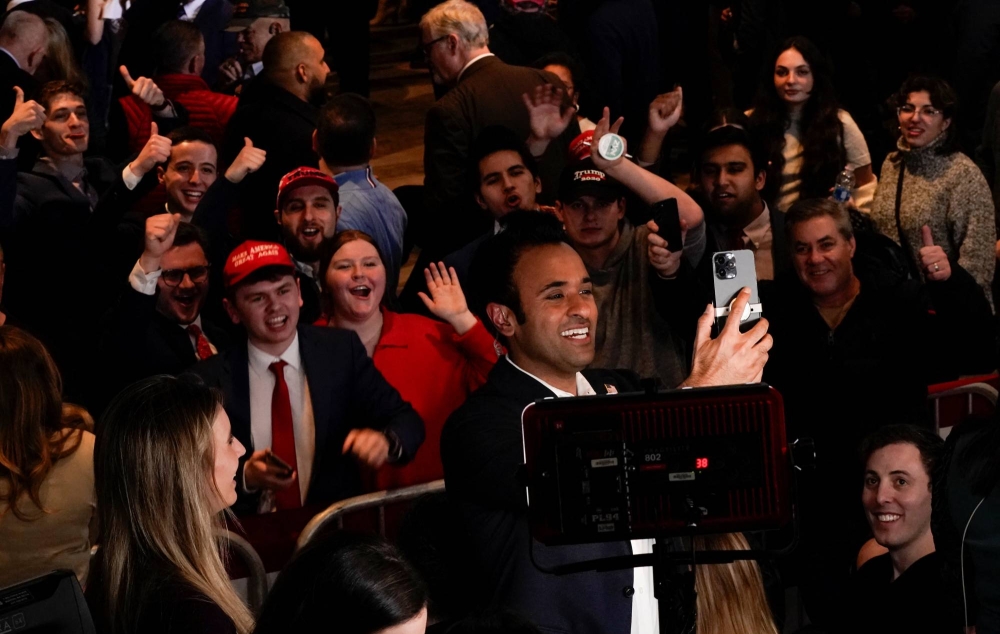Asian Americans frustrated with Biden back Republicans in New Hampshire

Unlike many other parts of the United States, New Hampshire, where the second contest in the Republican presidential nominating process took place, has little ethnic diversity.
It is one of the whitest U.S. states, with Asian Americans — the fastest-growing group of eligible voters in the country — accounting for only about 3 percent of its population, about half of what they represent nationally.
Official data have shown that Joe Biden, the incumbent Democratic president seeking re-election in 2024, enjoys loyal support from the group, which has the highest levels of educational attainment among eligible voters, and other non-white citizens.
An analysis by the Pew Research Center, based on U.S. Census Bureau data, has found that the Asian electorate’s expansion has been accelerated by naturalized immigrants, rather than those born in the country.
Many of them live in so-called blue states such as California, New York and Hawaii, where most people usually pick Democratic candidates.
The Republican primary in New Hampshire, held Tuesday about a week after the opening battle in Iowa, was won by former President Donald Trump, boosting the odds of a rematch against Biden in the general election later this year.
Coupled with backing from younger voters, support from Americans whose ancestry traces to countries outside Europe was invaluable for Biden to defeat Trump when they first opposed each other for the presidency in 2020, and the same appears to be true for the upcoming election in November.
But there are Asian Americans who are strongly frustrated with Biden and his administration’s policies.
This sentiment was seen in New Hampshire, a small but important general election battleground with a population of about 1.4 million.
Lily Tang Williams, who is running for Congress in the New England state as a Republican, is one such voter. She believes that American ideals such as freedom, equality and meritocracy have been under attack by the Democratic Party and that the situation has become even worse under the Biden administration.
Williams, who left her home country of China in 1988, said that instead of cherishing “common ground,” U.S. politics have never been more divisive than they are now.
“As immigrants, we love this country,” said the 59-year-old, who was born to illiterate working-class parents in the south-western Chinese city of Chengdu before the Cultural Revolution was launched by Chinese Communist leader Mao Zedong. “We are losing American ideals. We are losing the American dream.”
Before arriving in the United States with only $100 in borrowed money, she studied law at Fudan University in Shanghai, a prominent educational institution in China, with ambitions to transform the Asian country’s society to one governed by law from one ruled by the Communist Party.
But she became disillusioned with the reality of the country, and opted instead for a graduate degree in the United States. Later, she married an American man, raised three children and worked as a businesswoman.
Williams, who was naturalized as a U.S. citizen in 1995, is now what she calls an “accidental politician” out of concern that her country could become like China.
In her view, Democrats are leaning more progressive, with socialist policies such as tightening regulations and imposing higher taxes, and fueling a “class struggle.”
Williams said she chooses to be a Republican because she can never support politics that aim to improve the welfare of certain people based on their identities, including ethnicity, religion or social background.
“It’s not about skin color,” she said.
Iang Jeon, a Republican living in Nashua, New Hampshire, thinks the biggest issue in the presidential race is the “Democrat disregard for the rule of law,” saying it is “fundamentally changing America in many negative ways.”
Jeon, who was born in Seoul and immigrated to the United States in 1965 with his family, underscored that he is an American, first and foremost, regardless of his roots, and said the real question should be why U.S. voters back the Republican Party.
His view was that the party has been the guardian of American values, such as promoting what he recognizes as “equality of opportunity, not equity (as in) forced outcomes” and “equal justice under the law, not favoring certain parties or groups above others.”
A 63-year-old independent consultant after working for more than three decades in the technology and financial service sectors, Jeon stopped short of disclosing whom he voted for in the primary, noting that it should be a personal matter.
In New Hampshire, which has a large share of independent-minded voters and is known for its motto “Live Free or Die,” Trump was defeated by Biden in the 2020 general election and narrowly lost to Hillary Clinton in 2016.
In the head-to-head matchup against Trump in the 2024 Republican primary, Nikki Haley, a 52-year-old former ambassador to the United Nations, urged that the party needs a new generation of conservative leaders.
But Haley, considered a moderate if compared with Trump, could not beat the 77-year-old former president, representing an early watershed moment in the race for the White House.
Charlie Wu, a Chinese-American who came from New Jersey to work for Trump’s campaign team as a volunteer, said he has high expectations for the Republican front-runner to return to the presidency.
After knocking on the doors of about 340 New Hampshire voters in one week for Trump’s second consecutive victory in the race for the Republican nomination, the 63-year-old IT engineer said the former president’s attractiveness is that he is a “grassroots” leader.
Originally from the eastern Chinese city of Hangzhou, Wu first came to the United States in 1987 to pursue a Ph.D. in physics and obtained U.S. citizenship in 1999.
Since then, Wu said he has registered himself as a Republican and always voted for candidates of the party.
Asked why, Wu said he cannot go along with Democrats as he feels they tend to focus too much on the “differences” between people, while negating old ideas, culture and tradition.
Drawing parallels with what happened during China’s Cultural Revolution, he said, “Particularly, I’m very sensitive (to such a proclivity).”



